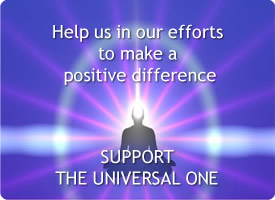How Mindfulness Can Overcome the Greed of the 1 Percent by Rick Heller
Posted By TheUniversalOne on November 23, 2011
I have led mindfulness and loving-kindness meditations at Occupy Boston. Meditation is, of course, valuable as a refuge from stress. Participating in an occupation, which may involve living outdoors under threat of possible arrest and police brutality, can certainly be stressful (I myself am only a day visitor to the Occupy Boston encampment). But I believe mindfulness can actually address the core problem that the Occupy movement confronts, i.e. the greed of the wealthiest 1 percent.
The thesis of my eBook, Occupy the Moment, is that greed is literally an addiction, a distortion of the brain systems that govern habits and rewards. The way to overcome greed is to “be in the moment” or to practice mindfulness.
In the Four Noble Truths, the Buddha identified inordinate desire as the fundamental source of human suffering. To overcome suffering, he identified a path that included mindfulness, the practice of focusing on the present moment with a friendly, nonjudgmental attitude.
Recent findings in neuroscience validate the Buddha’s claims. When we want something, the brain transmits a chemical called dopamine. When we get what we desire, internal opioids are released. The latter are substances chemically similar to morphine and heroin. So you can start to see how desires become literally addictive.
Just as an addict needs increasingly higher doses of a drug in order to continue to get high, people who are focused on money and possessions need more and more of them in order to be happy. This is because of habituation. The dopamine neurons in the brain react most strongly to unexpected rewards.
So if you were to move from a cramped apartment to a lovely and spacious home, at first you would take pleasure in the size of the rooms, the beautiful floors, and the extra privacy. Over time, you’d become habituated to your living quarters and pay less attention to the things that attracted you to it. That’s when you might take out a home equity loan and redo the kitchen.
Mindfulness reverses habituation. It’s the practice of paying close attention to whatever is around you and how you feel about it. Mindfulness amplifies the bottom-up flow of sensory information in the cerebral cortex, according to a theory developed by the psychiatrist Daniel Siegel. As Allen Ginsberg once wrote, “You own twice as much rug if you’re twice as aware of the rug.”
How might this play out on a societal level? First, as Occupy activists become more mindful, they’d be happier and more loving while maintaining a desire for social change. Some in the 1 percent might see that the occupiers were having more fun and join up.
Second, as people break out of their greed addiction, the dominant Reagan-Thatcher-Milton Friedman model of economic betterment would be undermined. With more mindful people in government, we could reorganize the economy so that the 100 percent are happier and healthier and preserve the environment for future generations.
Rick Heller is the author of Occupy the Moment: A Mindful Path to a New Economy










Comments